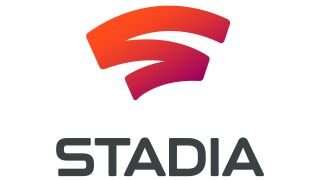October 12, 2019 weblog
Stadia's negative latency talk: Gamers say wait and see

Google Stadia is a game streaming platform with a launch date in November. So it's only human that Google is talking about how special Stadia is for gaming as the countdown begins.
What about Stadia and negative latency? Now, that sounded special. More responsive than your PC? Shane McGlaun in HotHardware and other tech watchers took notice of an Edge magazine article where the head engineer for the Google streaming platform talked about performance.
Google Stadia's vice president of engineering Madj Bakar said that Stadia in time could potentially run games faster than a local machine.
PCGamesN: According to Bakar, Google Stadia will be faster and more responsive than local gaming systems in a year or two. "Speaking with Alex Wiltshire in Edge magazine #338, Google's top streaming engineer claims the company is verging on gaming superiority with its cloud streaming service, Stadia, thanks to the advancements it's making in modelling and machine learning."
PCGamesN explained more about this workaround: "The company believes its tech is capable of overcoming the hurdles presented by over-the-web gaming, despite its extensive web of datacentres sitting potentially hundreds of miles away from a user."
HotHardware: "Bakar says that Google is on the verge of being better than local hardware due to advancements in modeling and machine learning. He says that the Stadia team believes that in the next year or two games running on Stadia will feel faster and more responsive in the cloud than locally."
But how? Regarding latency, Google Stadia will use predictive AI to predict your inputs, cutting streaming lag while gaming.
Jacob Ridley, deputy hardware editor, PCGamesN, clarified what negative latency is all about.
He said, "negative latency, powered by a datacentre's worth of compute silicon, may offer future cloud gaming systems flexibility to anticipate the likely action of a user, and ensure a speedy response ready for that potential eventuality. Whether or not a player takes the anticipated path or another entirely remains dependent on local player inputs."
"Google is aiming to use its machine learning tech to predict your inputs, effectively making games feel even more responsive than they would on a high-end PC," said TechSpot.
Predicting input? This concept had tech watchers cautious. "Some skepticism may be warranted here," said Cohen Coberly in TechSpot. Why? "Google has more than proven itself in the realm of AI and machine learning, but when it comes to the world of video games—particularly competitive ones—unpredictability is often the key to success."
Think zigzagging, sliding, jumping, ducking behind cover.
"It will be tough for an AI to predict which of these tactics a player wishes to employ at any given moment, and if it happens to guess wrong, that's not exactly going to endear Stadia to users," said Coberly.
All in all, Coberly remarked that "we wouldn't be surprised if serious gamers simply choose to take the latency hit in exchange for full control over their actions."
But wait, don't get it twisted—-that was the get-a-perspective note from Dave James in PCGamesN. James sought to point out what gamers can anticipate with this talk of negative latency.
"Okay, the idea of your gaming platform seemingly taking over control of your inputs in order to improve latency over the network is tough to parse, but it's the latent power of Google's datacentres that will be able to offer the promised buffer of predicted latency,...a whole load of datacentre compute power available to Google to make this negative latency a reality, and it's not going to actively play the game for you by predicting what you should do, but if your actions and Stadia's predictions match then input lag can be reduced."
"The system will have to be seen in action to know how well it works," said McGlaun. The same sentiment was expressed by Ridley in PCGamesN: "...we'll have to wait until Stadia's launch this November to find out how efficient Stadia's streaming algorithms are in the real world."
© 2019 Science X Network





















